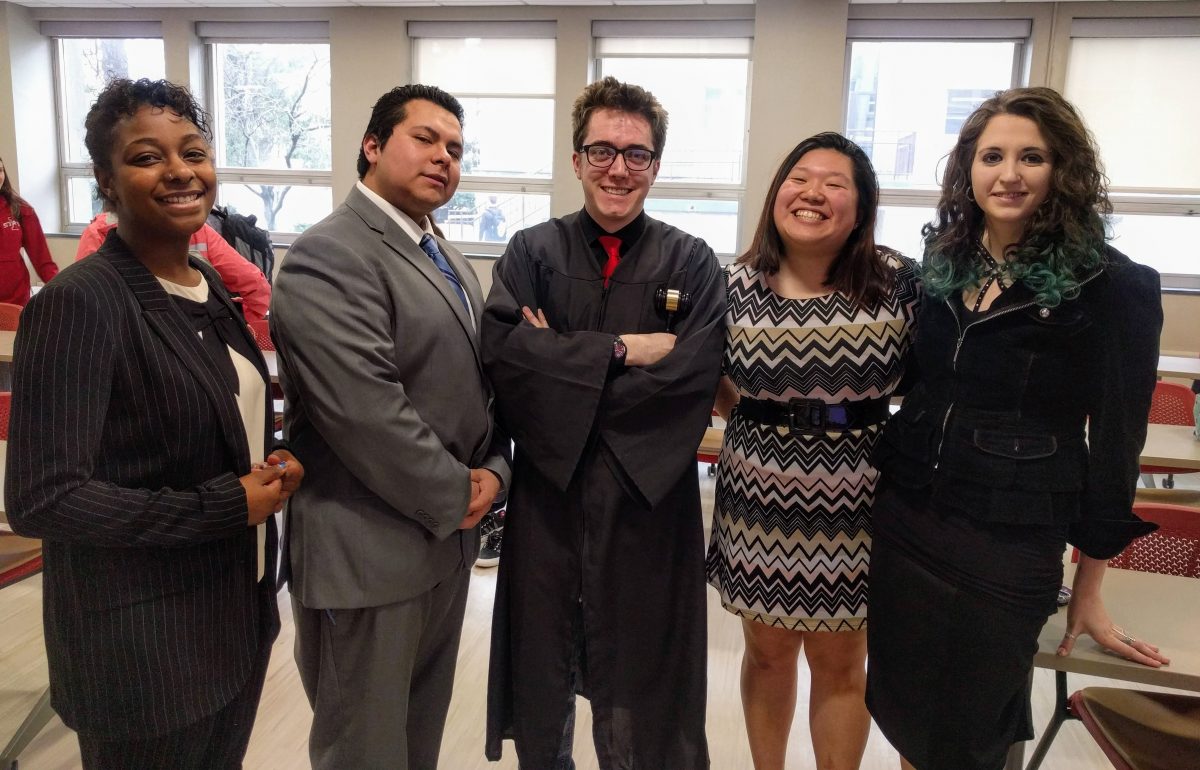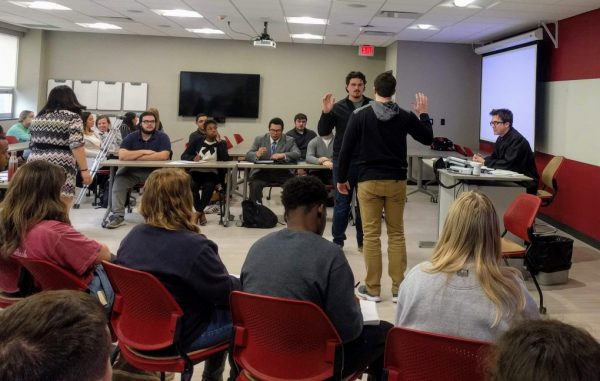Students on trial: Experiential classroom learning sets students up for success


The college classroom often conjures images of large lecture halls, but students can regularly access modern learning experiences to prepare them for the next step in their careers.
One such classroom experience includes the criminal justice studies/sociology 484 class “Mock Trial” taught by Monic Behnken, associate professor in the Department of Sociology and director of leadership studies.
According to Behnken, many of the students in the course are in their final semester of coursework at Iowa State University. The goal of the course is to provide students with the much-needed opportunity to apply skills and concepts they have learned throughout their education in the criminal justice studies program and solve real-world problems.
As the instructor, Behnken creates a fact pattern that guides the work, selects judge and attorneys and then moves into a facilitator role to help students answer questions about the process.
“The mock trial is unscripted and requires students in lead trial roles to conduct jury selection, craft opening statements, conduct direct and cross examination of witnesses and make closing arguments,” Behnken explained.
Other students serve as fact or expert witnesses and jury members. The course has helped some students solidify their plans to pursue legal careers.

“After graduation, I plan on attending law school and becoming a criminal prosecutor. This class has been an amazing opportunity to gain experience in this field. I would highly recommend a class like this to anyone who is looking at law – it’s a lot of work, but it’s incredibly beneficial,” said Anna Gardner (’20 criminal justice studies), who acted as a prosecutor during the mock trial.
Other students like Mitchell Jarvis (’20 criminal justice studies), a witness, said that the course gives students practical knowledge and skills they can apply in their future careers.
“Application and hands-on learning are the most effective and useful tools for professional and academic development, and that’s why this is one of the most useful classes that I have taken during my academic career,” Jarvis said.
The course and its activities take a lot of planning to give it the kind of complexity that a real-life court case would have.
“I hope the students gain an appreciation for the complexities of the legal system throughout the course,” Behnken said. “Each side of the fact pattern has strengths and weaknesses, so students have to decide how to highlight the strengths of their case and address its weaknesses.”
Beyond gaining knowledge and skills for a career in the legal system, students learn how to work collaboratively and respect their peers.
“To be successful, students must cooperate, communicate, hold each other accountable, and consistently prepare. By the time the trial has started, we have a culture of respect in which students have learned to rely on each other and respect each other as professionals,” Behnken explained.
Students at Iowa State are appreciative of experiential learning that they can take with them and use after graduation—whether they go into law or any other career.